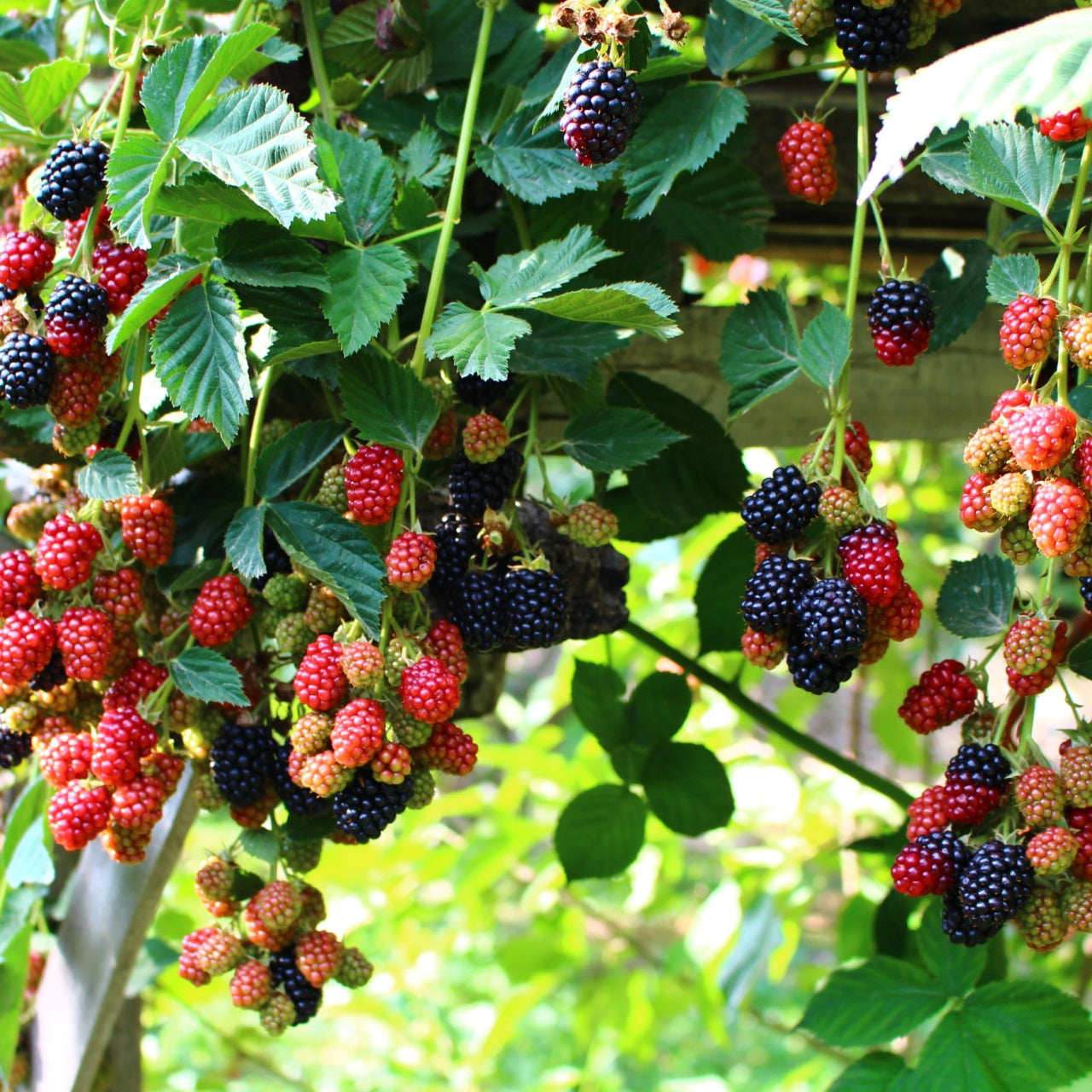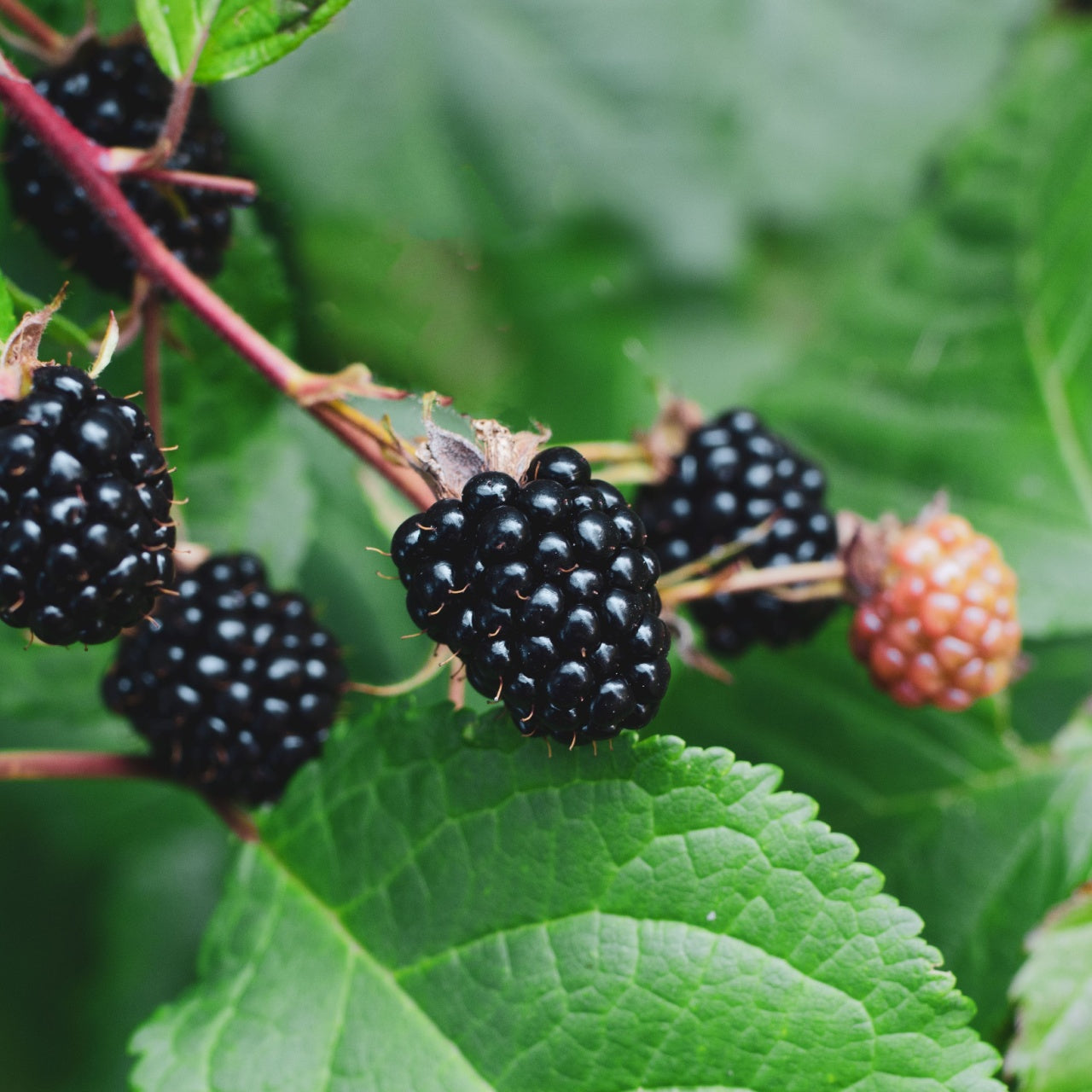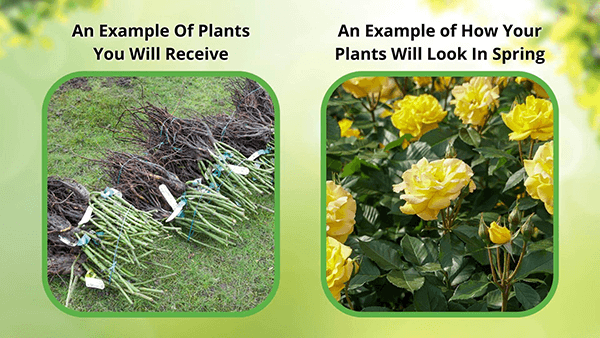Sep 25, 2025 min read
The Decline of Bird Populations — and...
In the last few decades, scientists have observed that the bird population is declining all around the world. This is...
Read More


Removes & Absorbs Toxins
Improves Air Quality
Low maintenance & easy to grow
Dewberry plants are closely associated with blackberries. Rather than high-arching or erect, they are slightly trailing or woody vine brambles bearing amassed fruits resembling raspberries. The plant flowers are mainly between April and June.
The older stems are woody and brownish, while the younger ones are green.
The density of flowers is moderate. The plant looks whitish and is characteristically subtended by a little leaf. They present in tiny clusters or sometimes on long stalks as singles.
Like raspberries, the berries are purple-red, with more rigid and extensive seeds than blackberry seeds. The fruit is a deep purple, nearly black, and covered in a thin coating of waxy droplets.
The plant grows in a trailing habit and reaches a height of approximately two feet. Its red-haired stems are covered in hooked prickles (slender thorns). Its leaves are complex, alternating, and roughly oval with sharp teeth.
They are primarily three-divided, with each lateral leaflet having a pointy lobe. They are low-growing perennial plants that grow like a woody vine, with stems reaching fifteen feet trailing the ground.
Its berries are tough to reach since they naturally run along the ground. Fruiting canes are commonly attached to a wire trellis, which helps to keep them off the ground, making the fruit more easily reachable.
The plant occurs in abandoned pastures, fields, fencerows, thickets, or prairies. The European type is often limited to coastal areas, especially dune environments.
Most berries are self-fruitful. For those that aren't, cross-pollination is mandatory to produce a crop.
Several bird types include finches, waxwings, catbirds, relish the fruits of the Dewberry Plants, opossums, box turtles, and raccoons. As a source of food, they keep the ecosystem going.
This Is How Your Plants Will Look upon Delivery
Bloom Season
Bloom/Foliage Color
White
Shipping date depends on the date displayed and chosen when you order from the product's page.
We do not offer warranties on products after 5 days past receiving your plants.
Our Blogs
By signing up, you agree with our privacy policy.